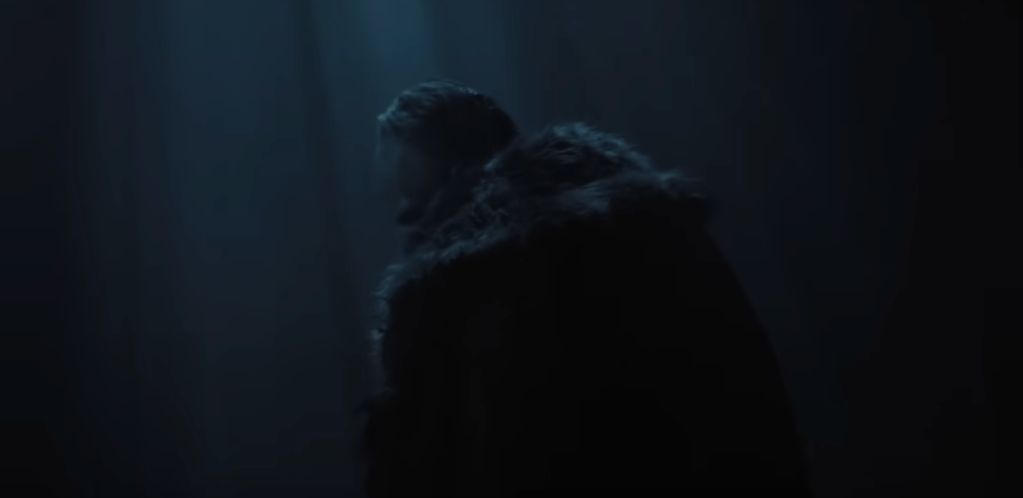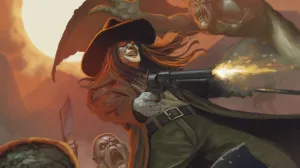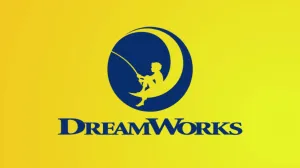There are many deeply amusing qualities in Forgetting Sarah Marshall, especially when it comes to every line delivered by Paul Rudd’s blitzed-out surfer guru (“Oh, the weather outside is weather!”) However, what’s arguably most hysterical about this Nicholas Stoller directorial effort is its box office haul. Forgetting Sarah Marshall grossed $63.17 million domestically, meaning the film that ended on a gigantic puppet musical about Dracula (complete with Jason Segel doing a Bela Lugosi impression) has made more than all of Universal’s other 21st-century Dracula movies.
Videos by ComicBook.com
Despite costing so much less to make, Universal Pictures’ release Forgetting Sarah Marshall and its recurring fascination with Dracula mythos proved more palatable to the general public than Dracula Untold, The Last Voyage of the Demeter, and Renfield. Universal keeps trying to make this lynchpin of the original Universal Monsters a big deal at the modern box office, but audiences just aren’t nibbling. What’s happening here? The Mummy Returns and The Invisible Man proved 21st century Universal Monsters movies can make a pretty penny at the box office – something the new Wolf Man remake is betting on. Why is Universal’s Dracula cursed at the box office unless he’s a singing puppet?
Universal’s Dracula’s Box Office Woes

Tod Browning’s 1931 Dracula really began the Universal Monsters resurgence in the 1930s (though The Hunchback of Notre Dame and The Phantom of the Opera technically preceded it in the studio’s canon). Bela Lugosi’s famous incarnation of Bram Stoker’s 1897 literary character would return in Abbott and Costello Meet Frankenstein while other actors would portray the character in movies like House of Frankenstein. In the rest of the 20th century, famous iterations of Dracula from other studios would be inhabited by Christopher Lee and Leslie Nielsen. Universal, meanwhile, would try to make the Dracula lightning strike again in the 21st century to dismal box office results.
Trying to turn Dracula into a tortured superhero played by Luke Evans in Dracula Untold didn’t get audiences all revved up for further Dracula movies. Nor did turning this vampire into a monstrous beast in The Last Voyage of the Demeter get audiences lining up around the block. The studio’s 2024 horror/comedy Abigail, which is loosely based around the Dracula’s Daughter concept, had a middling box office ($42.8 million off a $28 million budget). Not even an acclaimed turn from Oscar-winner Nicolas Cage as Count Dracula in Renfield was enough to inspire box office success. Four times Universal has struggled to resurrect this undead icon, while its arthouse sibling studio Focus Features has ironically had extreme success with the Dracula pastiche Nosferatu. Count Orlok is now more of a box office draw than Dracula!
A key problem any Dracula movie has is that vampire movies have a mixed box office track record outside of the Twilight and Hotel Transylvania franchises. Interview with the Vampire and Bram Stoker’s Dracula made money in the 90s, sure; however, Dark Shadows, Morbius, and Abraham Lincoln: Vampire Hunter were all bombs. Not even glowing reviews could turn Let Me In into a moneymaker back in October 2010. Just putting a vampire into your movie won’t suddenly turn it into a hit.
On the contrary, it’s fair to say that, at this point, audiences appear to hesitate when it comes to vampire films. You have to really sell your title as something special or idiosyncratic to get over this box office hump. Universal’s attempts to get Dracula revived haven’t quite cracked that nut.
[RELATED: Wolf Man Director Issues Warning That Not Everyone Will Like the Creature Design (But for Good Reason) ]
Is There Hope For Modern Dracula Movies?

It doesn’t help that Dracula is so associated with comedic skewerings (like Adam Sandler’s Dracula from Hotel Transylvania) that it’s hard to make him as frightening to 2025 moviegoers as he was to folks in 1931. That might be why Nosferatu has done so much better with Count Orlok. Even with the character’s SpongeBob SquarePants connection, Orlok doesn’t have the baggage of endless pop culture parodies (or other recent box office bombs) weighing him down like an albatross. Perhaps Dracula and his mythos simply can’t function as well in the modern horror movie landscape.
If there’s any hope for any filmmaker tackling the inevitable next attempt by Universal to relaunch Dracula, though, is that hit vampire horror movies exist. Nosferatu proved Twilight and Hotel Transylvania don’t have monopolies on lucrative vampire features. If one modern hit exists in this domain, another can surely emerge. Don’t forget that the entire modern Universal Monsters concept looked dead in the water after 2017’s The Mummy. All it took was The Invisible Man (2020) to suddenly make these productions hot again. 21st-century Universal Dracula movies are currently cursed, but that doesn’t mean they’re doomed for all of eternity. Perhaps it’s time to think of (finally) adapting that Dracula puppet musical from Forgetting Sarah Marshall into a feature-length movie?
Dracula Untold is currently streaming on Netflix.








